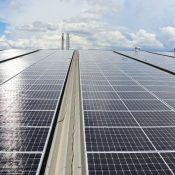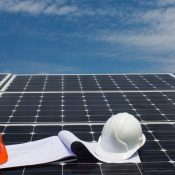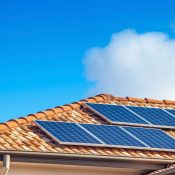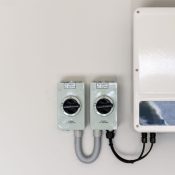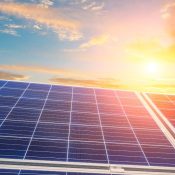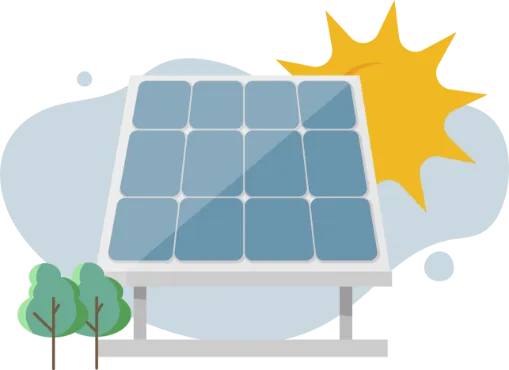Solar Panel Efficiency Explained
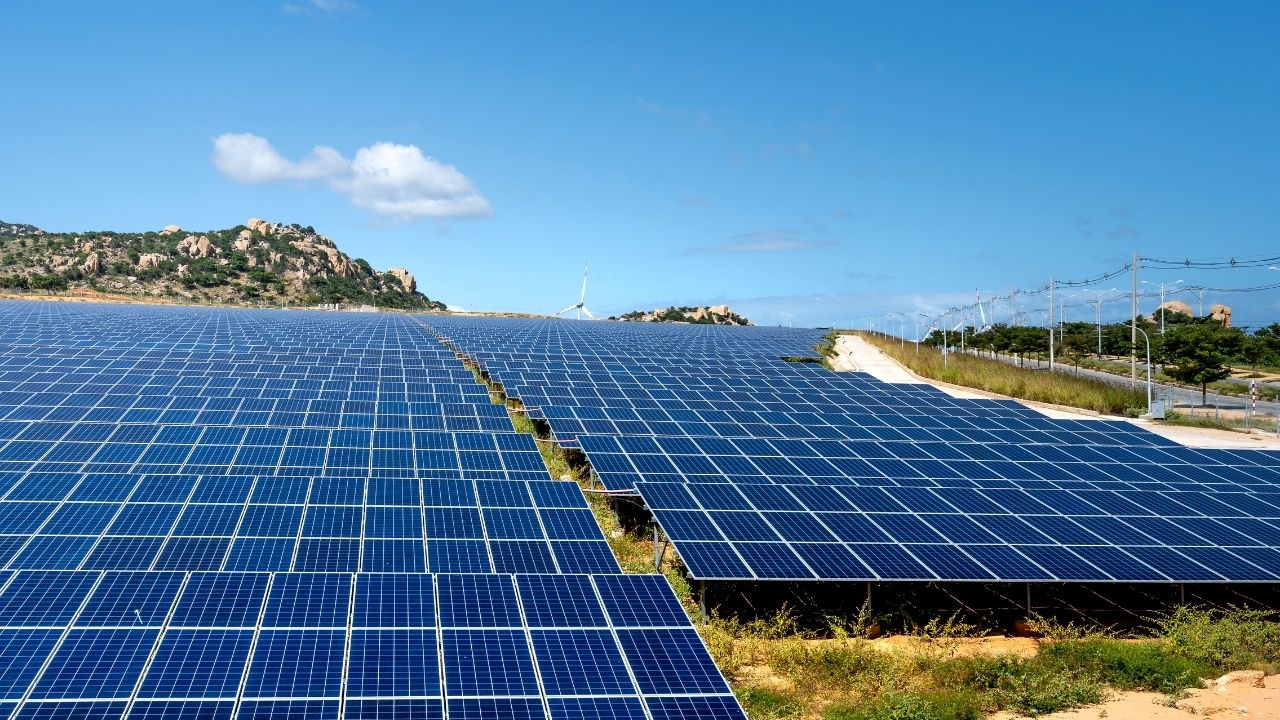
Are you thinking about investing in solar panels but are unsure about their effectiveness in Ireland because of the unpredictable weather? Almost everyone is facing this issue. We’ve noticed an increasing number of Irish residents curious about how well solar panels might perform in our homeland.
This post will provide you with information on the factors that affect solar panel performance, compare them with other countries, and highlight the potential benefits specific to Ireland’s conditions.
Are you ready to start this amazing journey into the world of solar energy with us? Let’s jump right in!
Solar Panel Efficiency in Ireland
Factors affecting solar panel efficiency in Ireland include the amount of sunlight, weather conditions, and the angle and orientation of the panels. Let’s get into the details to understand a bit more about these factors!
Factors affecting solar panel efficiency in Ireland
Sunlight is the main thing that solar panels need. They work best on bright days with lots of sun. But, in Ireland, we don’t always have sunny days. Clouds can make solar panels less strong.
Also, the angle of your roof matters a lot. If it faces south and has a tilt of about 30 to 45 degrees, it will catch more light from the sun and give you more power! The type of panel also plays a role, as some types are better than others at catching sunlight.
Lastly, dirt or shades can block sunlight from reaching the panel surface, which reduces how well they work.
Performance and output in Irish conditions
In Ireland, solar panels perform well and generate a good amount of electricity. The efficiency of solar panels can vary between 15% and 22%. A medium-sized PV system in Irish conditions can produce around 4,000 kilowatt-hours (kWh) of electricity per year.
While the average daily output is not mentioned, it is important to note that solar panels work best on sunny days with direct sunlight. By harnessing solar energy, homeowners can reduce their carbon footprint and save on electricity bills.
With the potential for Ireland to achieve a significant increase in solar PV capacity by 2022, investing in solar panels is a wise choice for sustainable energy generation.
3 Benefits of Efficient Solar Panels in Ireland
Solar panel efficiency in Ireland offers numerous benefits for homeowners. A lower carbon footprint, cost savings on electricity bills, and government incentives and grants are just a few advantages to consider when investing in solar energy.
Lower carbon footprint
Solar panel efficiency in Ireland has a positive impact on reducing our carbon footprint. By harnessing the power of the sun, we can generate clean and renewable energy, which means less reliance on fossil fuels that contribute to greenhouse gas emissions.
With more efficient solar panels, we can generate a higher amount of electricity with less impact on the environment. This not only helps combat climate change but also promotes sustainability for future generations.
Furthermore, investing in solar energy is a practical way to reduce our carbon footprint and make a difference in creating a greener and cleaner planet.
Cost savings on electricity bills
By investing in solar panels, Irish homeowners can enjoy significant savings on their electricity bills. Solar panel systems generate electricity from the sun’s energy, which means you’ll be using less electricity from the grid and relying more on clean and renewable energy.
This directly translates to lower monthly utility bills as you reduce your dependency on traditional power sources. In fact, a medium-sized PV system in Ireland can generate around 3,000 kWh of electricity per year.
With the efficiency of solar panels ranging between 15% and 22%, this can result in substantial savings on your energy costs over time. By harnessing the power of solar energy, you not only contribute to a greener environment but also save money in the long run.
Government incentives and grants
The government in Ireland offers incentives and grants to encourage homeowners to invest in solar panel systems. These incentives aim to make solar energy more accessible and affordable.
By installing solar panels, you can take advantage of various financial supports, such as the Solar PV Grant Scheme and the Accelerated Capital Allowance Scheme. These programmes can help offset the upfront costs of installation and reduce your overall investment.
Additionally, by generating your own clean electricity, you may be eligible for feed-in tariffs or net metering schemes that allow you to sell excess power back to the grid or receive credits on your electricity bills.
Types of Solar Panel Technologies in Ireland
Now let’s dive into the different types of solar panel technologies available in Ireland, including single-string inverters, hybrid inverters, thin film panels, mono-crystalline panels, and poly-crystalline solar panels.
So read on to discover which option may be best for you.
Single-string inverter
A single-string inverter is a type of technology used in solar panel systems. It converts the direct-current (DC) electricity produced by the panels into alternating-current (AC) electricity that can be used in your home.
This type of inverter is called “single-string” because it connects all the solar panels together in one string, which simplifies the installation process. With a single-string inverter, you can expect efficient performance from your solar panel system, helping you generate clean and renewable energy for your home.
Hybrid inverter
Hybrid inverters are a type of technology used in solar panel systems. They are designed to work with both the grid and battery storage, giving homeowners more flexibility in their energy usage.
With a hybrid inverter, you can use electricity from your solar panels when it’s sunny and store any excess power in batteries for later use.
The benefit of a hybrid inverter is that it allows you to maximise the use of your solar energy. During the day, when your solar panels are producing electricity, you can power your home appliances directly from the panels.
Any extra energy generated can be stored in batteries for later use during cloudy periods or at night when there is no sunlight.
By using a hybrid inverter, you can reduce your reliance on the grid and save money on your electricity bills. You will also have a backup power source during power outages, as the stored energy in the batteries can be used to keep essential appliances running.
Thin film panels
Thin-film panels are a type of solar panel technology used in Ireland. These panels are made by depositing a thin layer of photovoltaic material onto a substrate, such as glass or plastic.
They are lightweight and flexible, which allows for easy installation on different surfaces. While they may not be as efficient as other types of solar panels, they have their own advantages.
Additionally, thin-film panels perform better in low-light conditions and have a lower temperature coefficient, meaning they can still generate electricity even when it’s cloudy or cool outside.
Mono-crystalline panels
Mono-crystalline panels are a type of solar panel technology commonly used in Ireland. These panels are made from a single crystal structure, which allows them to have higher efficiency compared to other types.
In Irish conditions, mono-crystalline panels can generate around 15% to 22% of electricity per year. This means that a medium-sized solar panel system with monocrystalline panels can produce approximately 3,000 to 4,000 kWh of electricity annually.
Moreover, with their higher efficiency, mono-crystalline panels are an excellent choice for homeowners who want to maximise their solar energy generation and reduce their carbon footprint.
Poly-crystalline solar panels
Polycrystalline solar panels are a popular choice for homeowners in Ireland. These panels are made from multiple silicon crystals, which makes them less expensive to produce compared to mono-crystalline panels.
Poly-crystalline panels have an average efficiency of around 15% to 17%, meaning they can convert sunlight into electricity at that rate. In Irish conditions, a medium-sized polycrystalline panel system can generate approximately 3,000 to 4,000 units of electricity per year.
While poly-crystalline panels may not be as efficient as some other types, their lower cost makes them a practical option for many homeowners looking to invest in solar energy.
Final words!
Are you ready for the revolution and want to invest in solar power for your home in Ireland? With various factors influencing solar panel efficiency, it’s important to make an informed decision.
Our research shows that even in Ireland’s unpredictable weather, solar panels have the potential to generate a significant amount of electricity. Plus, with government incentives and grants available, it’s an investment that pays off both financially and environmentally.
So, what are you waiting for? Take the first step towards a sustainable future and be part of the green revolution with Going Solar today!
Planning a switch to solar energy?
Contact Going Solar now and Get Free Advice & Quote Within Minutes!
Frequently Asked Questions
Contact Going Solar Now!
Joe Brennan
Founder @ Going Solar
Joe Brennan, the founder of Going Solar, is dedicated to making solar power mainstream in Ireland and meet SEAI objectives. With a focus on affordability and sustainability, he is bringing renewable energy solutions to homes, reducing costs & environmental impact.
Recent Posts

